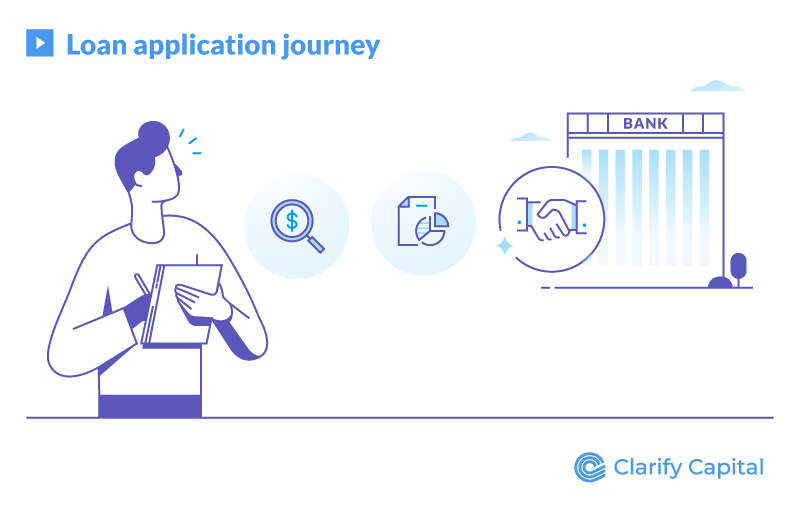Think of commercial real estate financing as the secret sauce to grabbing that perfect piece of property for your business or investment portfolio. Whether it's the new office downtown, a bustling retail spot, or a spacious warehouse, getting the right financing can turn your real estate dreams into reality.
For the savvy business owner or the eagle-eyed investor, knowing the ins and outs of financing is a game-changer. It's not just about having the funds; it's about leveraging those funds to grow your business, beef up your investment returns, or snag that prime location that puts you on the map.
With a solid grasp of financing, you're in a better position to negotiate, make smart decisions and reach your business ambitions. It's all about making your money work harder for you.
Understanding Commercial Real Estate Loans
Dipping into commercial real estate loans? Think of them as your financial ally for buying or investing in property. Unlike personal loans, these are tailored for purchasing office spaces, retail locations, or any property that's about making your business dreams come true.
You've got options: bridge loans for short-term needs, SBA loans with government backing and construction loans for those building from scratch. Each serves a unique purpose and is designed to match your real estate strategy.
Commercial loans are a different breed compared to residential mortgages. They're often shorter in term but might come with bigger payments down the line. The focus here is on the property's earning power, not just your income. Expect higher interest rates and larger down payments.
While residential mortgages aim to secure homes, commercial loans are all about investing in properties that generate income. It's this potential for profit that defines the commercial lending landscape.

Loan Types and Options
When it comes to commercial real estate, the financing road is packed with options. Each path has its perks, tailored to fit different needs, whether you're eyeing a new construction project or planning to refurbish an old gem. Let's break down some of the key players:
SBA 7(a) loans: Your go-to for versatility. The SBA 7(a) loan is like the Swiss Army knife of loans. Backed by the Small Business Administration, it's flexible enough to cover purchasing property, refinancing existing debts, or even buying equipment. If you're a small business looking to plant your flag in a commercial space, this could be your ticket.
SBA 504 loans: The big project champion. Dreaming bigger? The SBA 504 is another small business loan that steps in when you're looking at major purchases or constructions. It's a bit like a tag team — part of the loan comes from a lender, part from a development company, and you bring the down payment. The catch? It's specifically for projects that boost job creation or meet certain public policy goals.
Bridge loans: The quick fix. Need cash fast to snag that perfect property before it slips away? Bridge loans are short-term, fast-acting loans that help you "bridge" the gap. They're perfect when you're waiting on longer-term financing to come through but don't want to lose out on a great opportunity.
Construction loans: Building dreams from the ground up. If you're starting from scratch, a construction loan has your back. These loans cover the cost of building new structures, and here's the kicker: you only pay interest on the funds as they're drawn, not the whole loan amount upfront. Once construction wraps up, you'll usually refinance into a more traditional loan.
Multifamily loans: The investor's choice. Interested in properties that house multiple families? Multifamily loans are designed for buildings with several units, offering a way to finance apartments or condos. They're a solid pick for investors looking to dive into the rental market.
Owner-occupied loans: For the hands-on owner. If you're planning to be your property's main tenant, an owner-occupied loan can help you buy or improve your workspace. These loans often come with more favorable terms, under the logic that you're more likely to take care of a property you're actually using.
Each of these loans has its own set of rules, benefits and ideal uses. Whether you're building, buying, or just bridging a financial gap, there's likely a loan option tailored to your project's needs. The key is to match your situation with the type of loan that offers the best terms, rates and benefits for your specific scenario.
Specialized Financing Options
Let's explore some tailored options that could be just what your project needs.
Non-recourse loans: Keep your assets safe. Opt for a non-recourse loan if you prefer a loan where the lender can only claim the property in case of default, not your other assets. It's a smart pick for big investments with minimized personal risk.
Lines of credit: Flexibility at its best. A line of credit gives you a flexible funding pool for any need, from covering unexpected costs to funding renovations.
Income-producing property financing: Earn more from your investment. This financing is for properties that will generate rental income, offering terms based on your investment's revenue potential. It's ideal for landlords looking to maximize their returns.
Renovation financing: Revitalize your property. Renovation financing can transform an outdated property into a desirable space, potentially increasing its value and attractiveness. It's tailored for makeovers, big or small.
Choosing the Right Lender
Selecting the right lender for your commercial real estate venture is like choosing a partner for a marathon. You want someone who is reliable, understands your pace and shares your end goal. Here's what to keep in mind to ensure you're teaming up with the right financial ally:
Interest rates and fees. Obviously, you'll want to look for competitive rates, but don't overlook the fees. Sometimes, the devil's in the details.
Loan terms. Are the terms flexible enough to accommodate your project's timeline and cash flow needs? Longer terms mean lower monthly payments, but more interest over time.
Lender expertise. A lender with experience in your type of project or industry can offer invaluable insights and smoother processing.
Customer service. You want a lender who's responsive and communicates clearly. A good relationship can make all the difference, especially when navigating bumps in the road.
Reputation and reviews. A lender's reputation can give you a glimpse into your potential experience. Look for feedback from other borrowers.
The players: Credit unions, banks and non-bank lenders
Credit unions. Often offering lower fees and interest rates, credit unions can be a great choice for those who value personalized service. However, they might have more conservative lending criteria.
Banks. With a wide range of services and loan products, banks are the traditional option for commercial loans. They're especially useful for those looking for a one-stop shop for all their banking needs, though they may require more paperwork and have stricter criteria.
Non-bank lenders. These lenders can be more flexible and faster in processing loans, often catering to those with unique needs or less-than-perfect credit. They might offer more innovative loan products, but these can come at higher costs.
Remember, this is about more than just a transaction; it's about forging a partnership that will help bring your vision to life.
The Application and Underwriting Process
Getting a commercial loan might seem complex, but it's really just a series of straightforward steps. Here's how to go from applicant to loan recipient without breaking a sweat:
Get prepared. Round up your financials, business plan and property details. This prep work is crucial for a smooth application process.
Fill out the application. This is your formal loan request. Make sure it's complete and accurate to paint the best picture of your financial needs and plans.
Submit your docs. Along with your application, hand in all the documents that tell the story of your business and the property you're eyeing.
Property appraisal. The lender will assess the property's value to ensure it matches up with the loan amount you're asking for.
Underwriting. Here's where the lender digs into your application, evaluating your financial health, the property's worth and the risk of lending to you.
Approval and closing. If all checks out, you'll get the thumbs up, sign some final paperwork, and receive your loan funds.
Lenders are basically risk detectives. They want to know if you can repay the loan and if the property is a good investment. They'll look at:
Your financial health. This includes your credit score, cash flow and financial history.
The property's potential. The lender evaluates the property's value, location and income-generating ability.
Your debt service coverage ratio (DSCR). This measures your ability to use your income to pay off the loan, showing lenders whether you're a safe bet.
In essence, the loan process is about proving your and your property's worthiness. By clearly demonstrating your financial stability and the property's value, you're more likely to secure the financing you need.
Key Loan Terms and Features
Getting a grip on the key terms of commercial property loans can clear up any confusion and help you make sound financial decisions. Let's explain some essential jargon.
Loan-to-value ratio. LTV is all about how much of the property's value your loan covers. A lower LTV is less risky for lenders and could mean better terms for you because it shows you're investing more upfront.
Down payments. The down payment is crucial. It affects not only your LTV ratio but also how lenders view your risk level. More upfront means potentially lower interest rates and better loan terms.
Amortization period. This is the schedule for your loan repayments, blending principal and interest over time. Early payments are more interest-heavy (or have prepayment penalties), but later, you'll chip away at the principal faster.
Fixed-rate loans. Offer predictable monthly payments. Great for budgeting, but you might miss out on lower rates if the market changes.
Variable-rate loans. Your rate can change, meaning your payments might decrease (or increase) with market rates. It's a trade-off between potential savings and payment predictability.

Financing Strategies and Solutions
Securing a commercial real estate loan with favorable terms involves more than just applying; it requires a strategic approach to showcase your financial reliability. Strengthening your credit score, showcasing your business's financial health and having a compelling business plan are critical steps.
These elements convince lenders that you're a worthwhile investment, reducing their risk and potentially leading to better loan terms. Negotiating skills also play a vital role; with a strong application, you can haggle for lower interest rates or more lenient repayment terms, ensuring your loan aligns with your financial goals.
Refinancing is a strategic tool for optimizing your loan conditions, appropriate when interest rates drop or when you're aiming to adjust your loan's structure. It's a chance to lower your monthly payments and secure a lower interest rate, or change your loan term to suit your current financial situation. Refinancing can also aid in debt consolidation or releasing equity from your property for further investment. Yet, it's crucial to weigh the benefits against the costs, like closing fees and potential penalties, to ensure refinancing supports your long-term financial objectives.
Regulatory Considerations and Compliance
In commercial real estate financing, being aware of and compliant with regulatory guidelines is important. The Small Business Administration (SBA) and the Federal Deposit Insurance Corporation (FDIC) are two key players in this field.
The SBA helps small businesses obtain loans through programs like the SBA 7(a) and 504 by offering lender guarantees, easing the lending process for small enterprises. These programs come with specific eligibility requirements aimed at supporting genuine business growth.
The FDIC, on the other hand, secures deposits at banks and thrifts, ensuring business investors and savers remain confident in the U.S. financial system. For those seeking commercial loans, the protection offered by the FDIC is a critical consideration in choosing a lender.
A particular point of attention for borrowers, especially in SBA-backed loans, is understanding occupancy requirements and other eligibility criteria. These regulations are designed to ensure loans support owner-operated businesses and not just real estate speculations. Eligibility may also hinge on the borrower's credit history, the business's financial health and the project's profitability.
Navigating Your Commercial Financing Journey
Understanding commercial real estate financing is crucial for anyone stepping into this arena. We've walked through the essentials, from loan options and picking the right lender to mastering the application process and adhering to regulations. This knowledge isn't just useful — it's vital for making informed choices and achieving your financial goals.
Ready to explore commercial real estate financing or need the right funding options? Let's move forward on this journey together. Apply for financing now.
Kickstart your application and open the door to new commercial real estate opportunities. Your next venture is just around the corner.

Bryan Gerson
Co-founder, Clarify
Bryan has personally arranged over $900 million in funding for businesses across trucking, restaurants, retail, construction, and healthcare. Since graduating from the University of Arizona in 2011, Bryan has spent his entire career in alternative finance, helping business owners secure capital when traditional banks turn them away. He specializes in bad credit funding, no doc lending, invoice factoring, and working capital solutions. More about the Clarify team →
Related Posts





